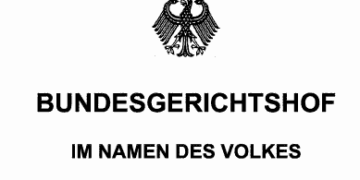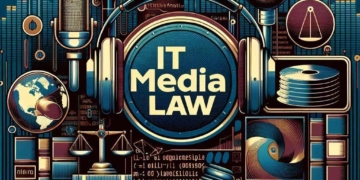In my career, I have been involved in exciting contract negotiations several times (or “many times,” however you want to describe it). Unfortunately, I also had to experience that these were not. And unfortunately, the reason was often that some (or more..) of the following points were not observed. And I then ask myself, “Why?” or “Sooo…unnecessary!”.
- Contract negotiations are like a game of chess. They require strategic thinking, tactics and, above all, thorough preparations. Many believe they are well prepared if they know their own interests, needs and goals. But that is only part of the whole. To be truly well prepared, you need to understand what makes the other side tick. What are their goals? What are their needs? What compromises are they willing to make?In an ideal world, every contract negotiation would be based on a win-win situation. But in practice, that’s not always the case. Sometimes conflicts and confrontations can arise. Therefore, it is crucial to know and understand the strengths and weaknesses of the other party. This will help you strengthen your own position and, if necessary, weaken that of the other party.
The lack of adequate preparation can prove fatal. It can lead to suboptimal conditions and significantly weaken your negotiating position. It also prevents you from exploiting the other party’s strengths and weaknesses. Poor preparation can also lead you to make quick and rash decisions that may prove detrimental later.
But what exactly does it mean to comprehensively prepare for a contract negotiation? It means that you need to understand the context of the negotiation. What is the current market situation? Which legal aspects have to be considered? What impact might political or social developments have on the negotiations?
In addition, comprehensive preparation means that you develop alternative plans. What happens if the negotiations fail? Are there other options or vendors you might consider? What are your best alternatives to a negotiated agreement (BATNA – Best Alternative To a Negotiated Agreement)?
Preparation is the key to successful contract negotiations. It gives you security, creates clarity and strengthens your negotiating position. Therefore, you should never go into a contract negotiation unprepared. It is one of the most important investments you can make for the success of your negotiations.
- In a contract negotiation, it is essential to know your goals and priorities. These serve as your compass and show you the path you want to take. They give you a framework for the decisions you need to make during negotiations. Without clear goals and priorities, you may feel lost and disoriented.But just as important as knowing your goals and priorities is the ability to remain flexible. Why? Because in the real world it is almost impossible to fulfill all conditions 100%. There will always be aspects that are not exactly what you want. This means you must be willing to compromise to reach consensus.
Imagine you are in a negotiation and rigidly insist on your demands. What will happen? Most likely, the other side will be deterred and withdraw. Or it insists just as rigidly on its terms. In either case, you’ll likely end up without a contract and have wasted valuable time and resources. This is the risk you take when you are too rigid.
But flexibility doesn’t mean forgetting or abandoning your goals and priorities. It means being open to change and alternatives. It means having the courage to correct your course when circumstances change. And it means having the willingness to adjust your strategy if you find it’s not working.
The ability to respond to change and consider alternatives is critical to the successful conclusion of negotiations. It allows you to identify and take advantage of opportunities that you might otherwise have overlooked. It allows you to respond to challenges and obstacles instead of being discouraged by them. And most importantly, it allows you to negotiate a contract that meets both your interests and those of the other party.
So a good negotiator is not only someone who knows their goals and priorities, but also someone who is flexible enough to adjust them when the situation calls for it. He is someone who can compromise without losing sight of his interests. And he is someone who has the courage to change his strategy when he realizes it is not working. So be not only well prepared, but also flexible. Your negotiations will benefit.
- Contract negotiations can quickly become emotionally charged situations. It’s about interests, money, resources, power and sometimes prestige. The pressure is often high and so are the stakes. So it’s understandable that emotions sometimes run high. But it is precisely in such moments that it is especially important to control one’s emotions and remain professional.Emotional outbursts, personal attacks or threats not only come across as unprofessional, but can also damage the relationship with the other party and disrupt the negotiation process. They can destroy the trust that is so important to a successful negotiation. And they can damage your credibility and reputation, which can have long-term consequences for your business relationships.
However, it is important to understand that professional behavior does not mean suppressing or ignoring one’s emotions. It means recognizing them, understanding them, and managing them in ways that support rather than hinder negotiations. It means transforming one’s frustrations and fears into constructive energy. And it means maintaining respect and courtesy despite all difficulties.
Treating the other side with respect can help build trust and establish long-term business relationships. It shows the other side that you take their interests and concerns seriously. It shows that you are willing to negotiate on an equal footing. And it shows that you are a reliable and honorable business partner.
Another aspect that should not be underestimated in this context is communication. Professional communication is clear, precise and respectful. It avoids misunderstandings and ensures that all parties have the same information. It creates an atmosphere of openness and transparency, which is essential for successful negotiation.
Overall, then, professional conduct in contract negotiations is invaluable. It can help avoid potential conflicts, gain the trust of the other side, and negotiate a fair and balanced contract. Therefore, you should always be careful to control your emotions, communicate respectfully and behave professionally at every stage of the negotiations.
- Transparency is the foundation of every successful negotiation. It balances information and ensures that all parties can act from an informed position. Without transparency, information asymmetries can occur, distorting the outcome of negotiations and leading to unfair terms.It may be tempting to hide information or deceive the other party to gain an advantage. In the short term, this can even lead to success. You could negotiate better terms or get a higher price. But the price you pay is high.
In the long run, a lack of transparency damages your reputation. They are perceived as unreliable and dishonest. This can make other companies hesitant to do business with you and can significantly reduce your chances of future business. Furthermore, a lack of transparency undermines trust, which is crucial for a lasting business relationship. Without trust, it is almost impossible to build stable and long-term business relationships.
In addition, concealing important information can have legal consequences. Depending on the nature of the information and the context of the negotiation, you could face allegations of deception or even fraud. This can result in penalties, damage claims and a significant loss of business.
Therefore, it is always better to be open and honest and rely on a fair negotiation. Be transparent about your goals, needs and expectations. Share relevant information and make sure the other party is informed as well. Enter into an open dialogue and look for win-win solutions. Transparency may be difficult in the short term, but in the long term it will lead to more stable contracts, stronger business relationships and a better reputation.
- It is natural and completely understandable that you try to get the best deal for yourself. Contract negotiations are ultimately about securing the best possible terms for yourself or your company. It is the place where you raise and defend your interests and needs. It’s where you struggle to get what you want and need.But a good contract is more than just a list of terms that serve your interests. A good contract is a balanced contract that takes into account the interests and needs of both parties. It is the result of a process in which both parties negotiate their terms and compromise to reach an agreement.
Unilateral contracts that consider only one party’s interests may appear attractive in the short term. They may offer you better terms or higher profits. But in the long run, they are often unstable, leading to dissatisfaction, conflict, and possible legal disputes. Why? Because the other party feels they are at a disadvantage. Because she feels that her interests and needs have been ignored. And because she feels the contract is unfair.
To ensure a long-term and successful cooperation, it is therefore important that both parties feel that they have received a fair deal. This does not mean that every contract must be perfectly balanced. It means that any contract should be the result of a fair and respectful negotiation process. It means that any contract should take into account the essential interests and needs of both parties. And it means that every contract should offer the potential for a win-win situation.
So don’t strive for a one-sided contract, strive for a balanced contract. Such a contract will not only protect your interests, but also lay the foundation for a strong and long-term business relationship. It will be a sign of respect and fairness and will strengthen the trust between you and the other party. And it will help you avoid conflict and legal wrangling and instead promote productive and satisfying collaboration.
- It’s tempting to sign a contract quickly and overlook the fine print. The urge to close the deal can be so strong that the details fade into the background. And often these details are written in complicated and difficult-to-understand language that reinforces the urge to overlook them. But it is these details that can have a significant impact on the outcome of negotiations.Every detail in a contract has a meaning. It may determine the way the contract is executed, how disputes are resolved, or what rights and obligations the parties have. It can also create unexpected costs, increase risks, or limit your flexibility. In particular, clauses relating to contract duration, termination conditions, penalties and guarantees can have a significant impact.
Therefore, you should take the time to carefully consider each point. Read the contract carefully and make sure you understand every detail. Do not hesitate to ask questions or request clarifications. Use the expertise of legal advisors if you are unsure. And don’t be pressured to sign a contract before you’re ready.
In addition, make sure you understand the implications of every detail. This means that you need to understand not only what is in the contract, but also what it means for you or your business. What impact will a particular clause have on your business? What are the risks? How might conditions change over time? What options do you have if things don’t go as planned?
Overlooking the fine print can save time and effort in the short term, but it can lead to significant problems in the long run. It can cost you dearly, disrupt your business, and even cause legal problems. Therefore, you should always take the time to read the fine print and make sure you understand it before signing a contract. It’s an investment that will pay off in the long run.
- You’ve heard the saying, “A man who represents himself has a fool for a client.” While it may sound humorous, it holds an important lesson. Even if you have extensive experience negotiating contracts, you should never underestimate the importance of good legal advice. In fact, even if you are the Michael Jordan of contract negotiations, professional legal advice can still make an important difference.An attorney can ensure that your interests are adequately protected and that you understand the legal implications of every clause in the contract. They can navigate the complex legal intricacies often hidden in contracts and alert you to potential risks. They can guide you through the maze of legal terminology and make sure you know exactly what you’re getting into.
In addition, an attorney can help you avoid pitfalls and negotiate a fair and balanced contract. They can help you negotiate better terms, avoid disputes, and protect your rights and interests. They can also save you from the consequences of a poorly negotiated contract.
And yes, I admit, as a lawyer, I could be biased. After all, my job is to advise you on legal matters and represent your interests. And yes, my opinion on this matter helps me earn my keep. But let me assure you of one thing: These rolls are not only delicious, they are also essential for a healthy and successful business relationship! So, remember to also seek the opinion of an attorney during your next contract negotiations. You might be surprised how much you can benefit from it. And in case you’re wondering – no, I don’t accept rolls as payment. Unless they are spread with lots of jam!













































